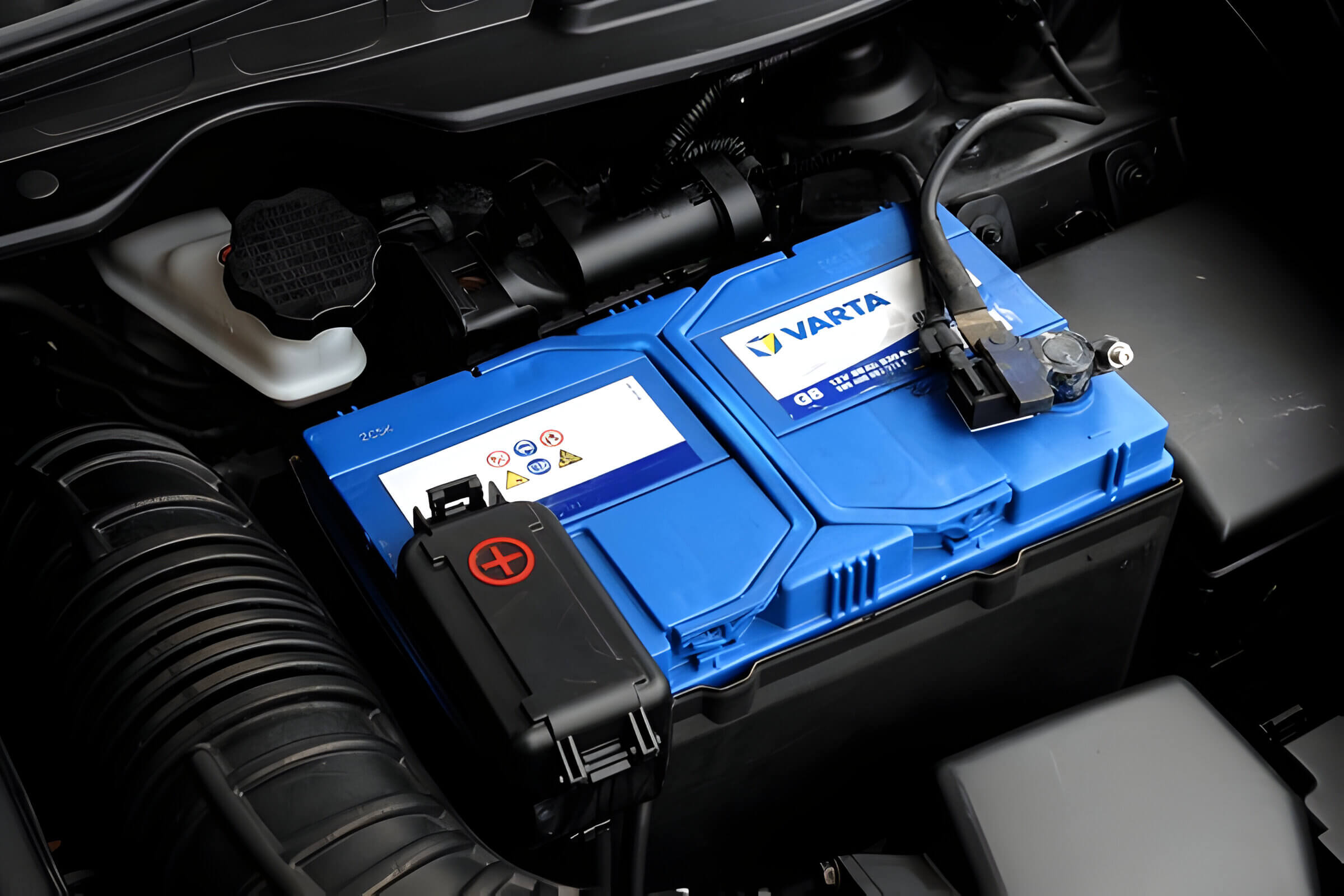A car battery is crucial for smooth vehicle operation, typically lasting three to five years. Its lifespan depends on climate, driving habits, and maintenance. Recognizing early signs of failure and troubleshooting can prevent breakdowns. This guide covers factors affecting battery life and offers maintenance tips to extend it, helping you choose the right replacement when needed.
Understanding the Lifespan of a Car Battery
The lifespan of a car battery is a crucial aspect that every vehicle owner should be familiar with. On average, a car battery lasts between three to five years. However, several factors can influence this duration, including climate conditions, driving habits, and maintenance practices.
Typically, the average car battery life tends to be around four years under normal conditions. Extreme temperatures, both hot and cold, can significantly shorten this lifespan by affecting the battery’s chemical reactions. For instance, high temperatures can cause the liquid inside the battery to evaporate more quickly, while cold temperatures can slow down these reactions.
Driving habits also play an essential role in determining how many years a car battery lasts. Frequent short trips prevent the battery from fully charging, leading to quicker depletion. Conversely, regular long drives help maintain its charge level and overall health.
Proper maintenance is another key factor in extending your typical car battery duration. Regularly checking for corrosion on terminals and ensuring that connections are tight can help prolong its life. Additionally, keeping your vehicle in good condition overall will reduce unnecessary strain on the battery.
By understanding these variables and taking proactive steps, you can maximize your car battery’s lifespan and ensure reliable performance for years to come.
Factors That Affect Car Battery Life
Understanding the factors affecting car battery life is essential for maintaining vehicle performance and avoiding unexpected breakdowns. Several key elements can influence how long a car battery lasts, each contributing to its overall health and efficiency.
Temperature Impact on Batteries
One of the most significant factors is temperature. Extreme temperatures, both hot and cold, can have adverse effects on car batteries. High temperatures can cause the liquid inside the battery to evaporate, leading to internal damage and reduced capacity. Conversely, cold temperatures can slow down the chemical reactions within the battery, making it harder for the engine to start.
Driving Habits and Battery Life
Your driving habits also play a crucial role in determining your car battery’s lifespan. Frequent short trips prevent the battery from fully charging, as starting the engine requires a considerable amount of power. Over time, this can lead to a weakened battery that struggles to hold a charge.
Electrical Load Effects on Batteries
The electrical load placed on your vehicle’s battery is another important consideration. Modern cars come equipped with numerous electronic devices such as GPS systems, entertainment units, and advanced lighting systems that all draw power from the battery. Excessive use of these features without adequate recharging periods can drain the battery more quickly than usual.
By being aware of these factors, you can proactively extend your car’s battery life and ensure reliable performance year-round.
Signs Your Car Battery Might Be Failing
One of the most crucial components of your vehicle is the car battery, and recognizing the warning signs that it might be failing can save you from unexpected breakdowns. Understanding these symptoms of a bad car battery will help you determine when it’s time to take action.
Firstly, one of the most common car battery warning signs is slow engine crank. If you notice that your engine takes longer than usual to start, this could indicate that your battery’s power is waning. Additionally, dimming headlights or interior lights are clear failing battery indicators. When the battery struggles to maintain adequate power levels, it often affects electrical components.
Another symptom to watch for is an illuminated check engine light or a specific battery warning light on your dashboard. These signals are designed to alert you about potential issues with your vehicle’s electrical system, including a failing battery. Corrosion around the battery terminals can also be a telltale sign; if you observe white, ashy deposits around the terminals, it might be time for a closer inspection.
Frequent need for jump-starts is another red flag. If you find yourself regularly needing assistance to start your car, it’s likely that your battery isn’t holding its charge properly anymore. Finally, consider replacing your car battery if it’s more than three years old; batteries typically have a lifespan of three to five years under normal conditions.
By keeping an eye out for these indicators and addressing them promptly, you can ensure that you’re not left stranded with a dead battery at an inconvenient time.
Troubleshooting Common Car Battery Issues

Car battery problems can be a major inconvenience, but understanding how to troubleshoot them can save you time and money. Here are some common car battery problems and tips on how to address them effectively.
How to Troubleshoot a Dead Battery
A dead battery is one of the most frequent issues drivers encounter. If your car won’t start, the first step is to check the battery terminals for corrosion. Clean any buildup with a mixture of baking soda and water, using a wire brush if necessary. Ensure the connections are tight and secure.
Fixing Car Starting Problems
If cleaning the terminals doesn’t solve your starting problem, you might need to test the battery’s charge. A multimeter can help determine whether your battery has sufficient voltage (typically 12.6 volts or higher). If it reads lower, it may need recharging or replacing.
Jump-Starting Tips
When jump-starting a car, safety is paramount. First, ensure both vehicles are turned off before connecting jumper cables. Attach the red clamp to the positive terminal of the dead battery and then to the positive terminal of the live battery. Next, connect one black clamp to the negative terminal of the live battery and attach the remaining black clamp to an unpainted metal surface on your car (away from the battery) to ground it properly.
Start by turning on the engine of the vehicle with a good battery first; then try starting your car with a dead battery after waiting for a minute or two.
Understanding these basic troubleshooting steps will help you manage common car battery problems efficiently and get back on track quickly whenever issues arise.
Top Maintenance Tips to Extend Your Car Battery Life
Maintaining your car battery is crucial for ensuring its longevity and reliability. By following some best practices, you can significantly extend the life of your car battery. Here are some essential battery maintenance tips to keep in mind:
1. Regular Checks for Batteries: One of the most effective ways to extend your car battery life is through regular inspections. Check the battery terminals and cables for any signs of corrosion or loose connections. Clean any buildup using a mixture of baking soda and water to prevent electrical issues.
2. Proper Charging Techniques for Batteries: Overcharging or undercharging can severely affect your battery’s lifespan. Make sure you use a charger that matches the specifications of your car’s battery and follow the manufacturer’s guidelines on charging duration and frequency.
3. Avoid Short Trips: Frequent short trips can prevent your car’s alternator from fully recharging the battery, leading to a gradual decline in its performance. If possible, combine short trips into longer ones or take occasional longer drives to ensure the battery gets adequately charged.
4. Turn Off Electrical Accessories When Idle: Leaving lights, radio, or other electrical accessories on when the engine is off can drain your battery quickly. Make it a habit to turn off all electrical components before exiting the vehicle.
5. Keep Your Battery Securely Mounted: A loose or improperly secured battery can vibrate excessively while driving, which may cause internal damage and reduce its lifespan. Ensure that your battery is tightly fastened in its tray.
6. Store Properly During Inactivity: If you plan not to use your vehicle for an extended period, disconnecting the battery or using a trickle charger can help maintain its charge level without causing degradation.
By incorporating these extending car battery life best practices into your routine, you’ll not only enhance performance but also save money on replacements in the long run.
The Importance of Choosing the Right Car Battery Replacement
Choosing the right car battery replacement is crucial for ensuring the reliable performance and longevity of your vehicle. The best replacement batteries for cars are those that meet your specific vehicle requirements and driving conditions. When selecting a new battery, several factors should be considered to make an informed decision.
First, consider the battery size and type recommended by your vehicle manufacturer. Using a battery that fits properly in the designated compartment ensures secure installation and optimal performance. Next, evaluate the battery’s cold cranking amps (CCA) rating, which measures its ability to start an engine in cold temperatures. A higher CCA rating is beneficial if you live in a region with harsh winters.
Another important factor is the reserve capacity (RC) of the battery, indicating how long it can provide power if the alternator fails. Additionally, consider maintenance requirements; some batteries are maintenance-free while others may need periodic checks and water refills.
Lastly, look at warranty options offered by different manufacturers. A longer warranty period often reflects confidence in product quality and provides peace of mind against potential defects or failures.



